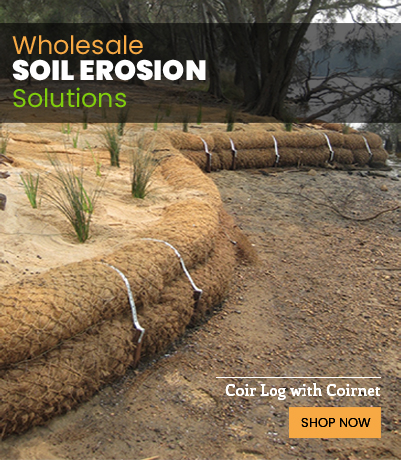Next time you decide to plant some aromatic herbs or daffodil flowers in your backyard, consider the benefits of using coir pith blocks. This product is growing in popularity within the horticultural and gardening world due to its natural, sustainable qualities. But what is it, exactly?
Coir pith blocks are composed of a material called coir, or coconut fiber, which comes from the husk located on the exterior of the coconut — the part that isn’t the delicacy we so often enjoy.
When compressed into block form, the coir pith blocks act as a great alternative to peat moss and offer numerous benefits to soil and plant life.
Better Airflow Than Potting Soil
While coir pith blocks are relatively new in the world of gardening and agriculture, the benefits of using them for potting soil are significant. Coir, being a natural fiber, allows for greater air flow to the earth, more so than the ever-popular vermiculite. This quality is especially useful in wet soil conditions where the dirt has been compressed, blocking airways.
In contrast, if the soil has experienced a lot of dryness, coir pith blocks have been proven to be easier to re-wet. Also, coir doesn’t dry out as quickly as other potting materials on the market.
Less Acidic Than Peat
Sometimes your soil doesn’t have all the nutrients that your plants need to grow and flourish. By adding materials such as coir — which is nutrient dense — to the existing soil, you have an opportunity to embrace a new way of soil conditioning and change it for optimized growth.
Since pith blocks are made from a natural material, they are better than peat for amending soil. Peat has a more acidic soil pH range of 3.5 to 4.5, compared to the use of coir pith blocks, which ranges from 5.8 to 6.8 on the pH scale.
Environmentally Friendly
Coir pith blocks are made from coconuts, which grow in abundance all year round. Coconuts can be harvested every two years, as opposed to peat which takes longer to mature. This in turn leaves more peat for Scotch whiskey production. Ardbeg 21 year old, anyone?
Another benefit of using coir pith blocks is that they are made from the part of the coconut that usually gets thrown away. As a consumer of this product, you’re not contributing to waste, and you can feel good about the fact that you are using all of the coconut.
Coir pith blocks are able to retain moisture for longer and are slower to decompose than other popular gardening products, such as peat.
Being a new kid on the block doesn’t mean that you are at a disadvantage, Coir pith blocks provide a growth medium that enables a plant to thrive. Your plants will get all the absorbable nutrients while also avoiding wet rot, thanks to the very nature of coconut fiber. Even though there are those who adhere to the traditional ways, with a little research and word of mouth, coir use will increase in time.

Leave a Reply
You must be logged in to post a comment.